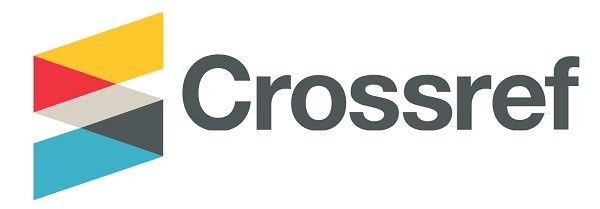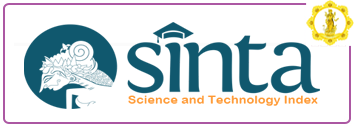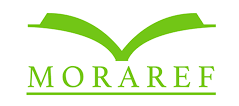PERAN ORANG TUA DALAM MENINGKATKAN PRESTASI AKADEMIK ANAK: STUDI KUALITATIF TENTANG POLA ASUH DAN PEMBINAAN KELUARGA
DOI:
https://doi.org/10.25078/jpm.v9i02.2789Keywords:
academic achievement, parenting practices, parents, child developmentAbstract
This study aims to investigate the role of parents in improving children's academic achievement in Cimande Village. The family, as the smallest unit in society, has a significant responsibility in fostering a positive lifestyle for children, including resilience, strong personality traits, and a sense of responsibility. A qualitative approach was employed, utilizing interviews with parents of elementary school-level children in Cimande Village. Purposive sampling was used to select research participants, considering variations in parenting styles and family development. Thematic analysis was applied to analyze the collected data and identify emerging themes and patterns related to the role of parents in enhancing children's academic achievement. The findings indicate three key themes: the influence of good parenting practices and guidance on students' academic performance, the impact of parental attention to children's learning difficulties on their academic achievement, and the positive effect of active parental involvement in supporting their children's learning process. In conclusion, the research highlights the critical role of parents in enhancing children's academic achievement and their overall learning process. The family serves as an initial platform for laying the foundation and potential for children to comprehend essential concepts. The motivation and enthusiasm provided by parents have a positive impact on children's learning outcomes and foster their dedication to the learning process.
Downloads
References
Coleman, P. K., & Karraker, K. H. (1998). Self-Efficacy and Parenting Quality: Findings and Future Applications. Developmental Review, 18(1), 47–85. https://doi.org/10.1006/drev.1997.0448
Eliyanti, T., Prasetyo, T., & Mawardini, A. (2023). Analisis Keterlibatan Orang Tua dalam Meningkatkan Prestasi Belajar Siswa Sekolah Dasar. Jurnal Pengajaran Sekolah Dasar, 2(1), 11–19.
Eliyawati, R., & Meiyuntariningsih, T. (2018). Peran orang tua terhadap prestasi belajar anak. Jurnal Abdikarya : Jurnal Karya Pengabdian Dosen Dan Mahasiswa, 01(02), 2–4.
Hapsari, N. A., Najoan, R. A. O., & Sumilat, J. M. (2022). Pengaruh Bimbingan Orang Tua Terhadap Tanggung Jawab Belajar Siswa Sekolah Dasar. EDUKATIF : JURNAL ILMU PENDIDIKAN, 4(1), 963–969. https://doi.org/10.31004/edukatif.v4i1.1839
Herdindha, N. C., & Riyanto, T. J. (2012). The Parental Pressure and the Impacts to the Main Characters in 3 Idiots (pp. 9–14).
Irawati, M., Wahidah, A., & Agustine, P. N. (2020). Pengaruh Pola Asuh Orang Tua Terhadap Gaya Hidup Siswa SMA Laboratorium Percontohan UPI. Jurnal Masyarakat Maritim, 4(1), 23–36. https://doi.org/10.31629/jmm.v4i1.2218
Jailani, M. S. (2014). Teori Pendidikan Keluarga dan Tanggung Jawab Orang Tua dalam Pendidikan Anak Usia Dini. Nadwa: Jurnal Pendidikan Islam, 8(2), 245–260. https://doi.org/10.21580/nw.2014.8.2.580
Jarbi, M. (2021). Tanggungjawab Orang Tua Terhadap Pendidikan Anak. PENDAIS : Jurnal Pendidikan Dan Wawasan Keislaman, 3(2), 122–140.
Kong, C., & Yasmin, F. (2022). Impact of Parenting Style on Early Childhood Learning: Mediating Role of Parental Self-Efficacy. Frontiers in Psychology, 13. https://doi.org/10.3389/fpsyg.2022.928629
Kumar Astalin, P. (2013). Qualitative Research Designs: a Conceptual Framework. International Journal of Social Science & Interdisciplinary Research, 2(1), 118–124.
Martsiswati, E., & Suryono, Y. (2014). Peran Orang Tua Dan Pendidik Dalam Menerapkan Perilaku Disiplin Terhadap Anak Usia Dini. Jurnal Pendidikan Dan Pemberdayaan Masyarakat, 1(2), 187. https://doi.org/10.21831/jppm.v1i2.2688
Maya, S., & Tafonao, T. (2021). Mengembalikan Pendidikan Anak Usia Dini di Rumah Sebagai Bentuk Tanggung Jawab Orang Tua Selama Pandemi. CARAKA: Jurnal Teologi Biblika Dan Praktika, 2(2), 204–220. https://doi.org/10.46348/car.v2i2.69
Nabavi, R. T. (2012). Theories of developmental psychology: Bandura’s social learning theory & social cognitive learning theory. University of Science and Culture, January 2012, 1–24.
Naite, I. (2021). Impact of Parental Involvement on Children’s Academic Performance at Crescent International School, Bangkok, Thailand. IOP Conference Series: Earth and Environmental Science, 690(1), 012064. https://doi.org/10.1088/1755-1315/690/1/012064
Ozturk Eyimaya, A., & Yalçin Irmak, A. (2021). Relationship Between Parenting Practices and Children’s Screen Time During the COVID-19 Pandemic in Turkey. Journal of Pediatric Nursing, 56, 24–29. https://doi.org/10.1016/j.pedn.2020.10.002
Pratiwi, A. D., Nugroho, A. A., Setyawati, R. D., & Raharjo, S. (2023). Analisis Kemampuan Literasi Numerasi Pada Siswa Kelas IV Di SD Negeri Tlogosari 01 Semarang. JANACITTA : Journal of Primary and Children’s Education, 6(1), 38–47.
Raden Siti Mariam, Prasetyo, T., & Abdul Kholik. (2023). Keterlibatan Orang Tua Terhadap Disiplin Belajar Siswa Dalam Mengerjakan Tugas Di Rumah Selama Pandemi. Jurnal Penjaminan Mutu, 9(01), 24–34. https://doi.org/10.25078/jpm.v9i01.1980
Rogers, M. A., Theule, J., Ryan, B. A., Adams, G. R., & Keating, L. (2009). Parental involvement and children’s school achievement: Evidence for mediating processes. Canadian Journal of School Psychology, 24(1), 34–57. https://doi.org/10.1177/0829573508328445
Siregar, N. S. S. (2013). Persepsi Orang Tua terhadap Pentingnya Pendidikan bagi Anak. Jurnal Ilmu Pemerintahan Dan Sosial Politik, 1(1), 11–27. http://ojs.uma.ac.id/index.php/jppuma
Spinelli, M., Lionetti, F., Pastore, M., & Fasolo, M. (2020). Parents’ Stress and Children’s Psychological Problems in Families Facing the COVID-19 Outbreak in Italy. Frontiers in Psychology, 11. https://doi.org/10.3389/fpsyg.2020.01713
Steinberg, L., Lamborn, S. D., Dornbusch, S. M., & Darling, N. (1992). Impact of Parenting Practices on Adolescent Achievement: Authoritative Parenting, School Involvement, and Encouragement to Succeed. Child Development, 63(5), 1266–1281. https://doi.org/10.1111/j.1467-8624.1992.tb01694.x
Zahedani, Z. Z., Rita Rezaee, Zahra Yazdani, Sina Bagheri, & Parisa Nabeiei. (2016). The influence of parenting style on academic achievement and career path. Journal of Advances in Medical Education & Professionalism, 4(3), 130–134. http://www.ncbi.nlm.nih.gov/pubmed/27382580%0Ahttp://www.pubmedcentral.nih.gov/articlerender.fcgi?artid=PMC4927255









